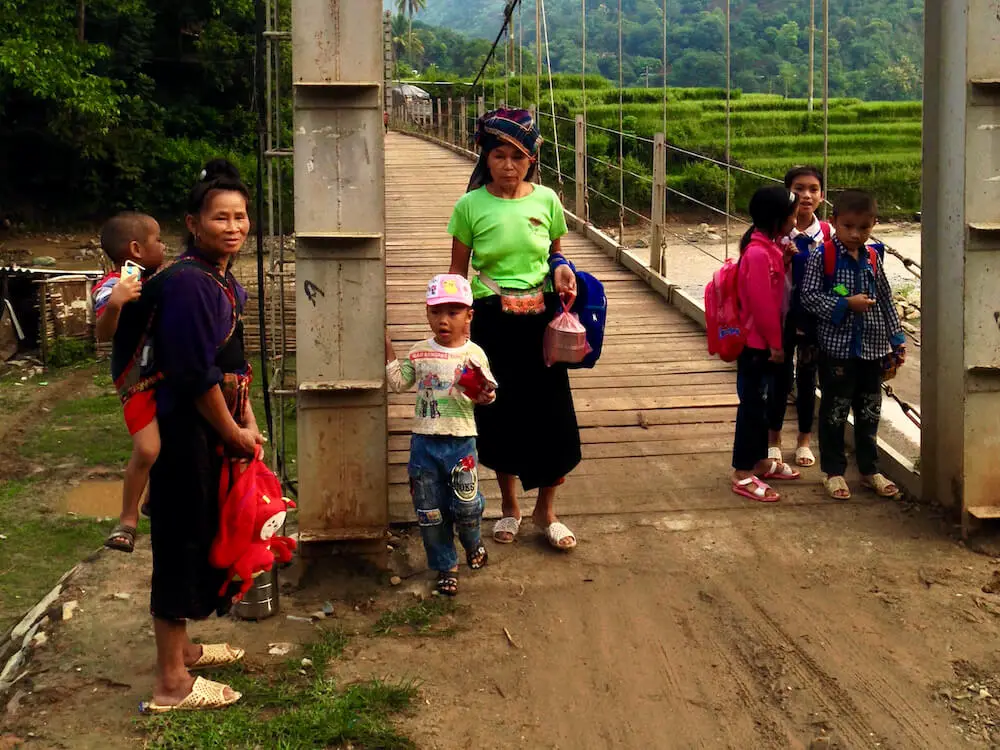The first book I read when I got to high school was Rich Dad Poor Dad. It was interesting, informative, and relaxing for a Sunday afternoon. However, after I put the book on the bookshelf, the first thing that got into my mind was: Why are so many people still poor even after they’ve understood everything written as written in the book?
From my perspective, poverty is a mindset that is taught for multi-generation in a household.
Specifically, the state of being poor is fearful, “transmissible”, but also preventable – just like a disease.
I have six cousins who are around the same age as me. I’m studying at a private institution under scholarship; my other cousins went to public schools in the same city. At my school, we are encouraged to be entrepreneurs and pioneers in the future. Students are guided to find their major and career paths since grade 10. Not all of us find out the right one, but at least we give it a thought.
When I had a chat with a high school senior cousin, she couldn’t tell me what her dream was. She wasn’t taught to see the big picture; rather, getting into a high-ranked university was her only objective. My cousin was extremely worried about her getting a post-graduate job, but she didn’t know how to start.
The small talk brought the answer to the question “Why would the rich get richer and the poor get poorer?” to my mind.
The rich kids are usually given the opportunity to go to private and international schools I do know a few middle-schoolers that have Stocks Trading in their curriculum. Their parents’ connections will help them in building their own businesses or getting a job. These kids will have higher standards and different definitions of “rich” when they grow older. They have elite education, strong connections with people from the same social class, and opportunities.
The middle-class children are slightly different. I found out the most common goal of us is to get a stable job and be debt-free.
What about underprivileged people?
When it comes to their situations, getting out of poverty is the ultimate goal. It’s expensive for them to go to school; in fact, most of them are more drawn to the idea of getting an actual job – at least they could earn money.
This mindset can be seen in many of the hill tribe villages in North Vietnam. For example, many Hmong girls look to get married very young as their mothers also got married young. They see this as their duty and their own option. The daughter can get married and bring in her husband as another farmhand to help the parents, or she will go to live with the husband’s family, so her parents no longer have to support her financially.
The problem is for these girls who marry young; it is almost impossible for them to ever get out of poverty. They are not educated and will have children at a very young age. They have no dream or understanding that it is a life outside the village or farm.
What Could We Do Then About Poverty?
Poverty is a cycle, and it will continue from a impoverished generation to another. This won’t end if the mindsets cannot be changed.
So, the only cure for this “disease” is education. The main reason why only a small number of poor children go to school is people haven’t acknowledge its importance. Most of them only see two things when considering getting their kids a decent education:
- Education is expensive
- Drop out of school to get a paid job is more beneficial
However, this is exactly the core cause of the cycle of poverty. Children’s lives could be transformed by education, which slowly helps them to overcome poverty. By this means, their income opportunities increased that constantly expose them to new ideas and broader life’s perceptions.
“Give a man a fish and he will eat for a day. Teach a man how to fish and you feed him for a lifetime.”
Supplies from volunteer and fund-raising campaigns could only act as a short-term solution. If a child is born into a low-income family and was forced to quit school from an early age, his or her family will have little chance of improving their financial status. Instead, encouraging children to have education is what should be done.
To help unfortunate souls get out of the state of being trapped in poverty, we teach by giving them tools – education.
That’s how poverty is cured.
Project Sprouts is a grassroots initiative to help schools, students, and communities in Vietnam. All our proceeds go to help those in need. Please help us by giving to our cause so we can help those in need. You can give by clicking here.
Related Content
Does Vietnam Have A Good Education System?
Vietnam has a good education system, but some things need to be changed or adjusted. Sometimes, too much theory without practical knowledge or experience in learning in our education system has led to some mistakes during teaching and training students in Vietnam.
You can learn more by reading Does Vietnam Have A Good Education System? by clicking here.
What Are Some Important Facts About Vietnam’s Education System?
Being raised in a Vietnamese household gives me a sense of education’s importance from a young age. A repeated daily routine that only consisted of at least nine studying hours is done while assuming that I would be successful in the future if my grades were high.
Vietnam’s education system has various aspects that need to be improved, such as poor students’ mental health, grade inflation, old-fashioned curriculum, etc.
You can learn more by reading Vietnam’s Education System Revealed, 3 Important Facts by clicking here.

